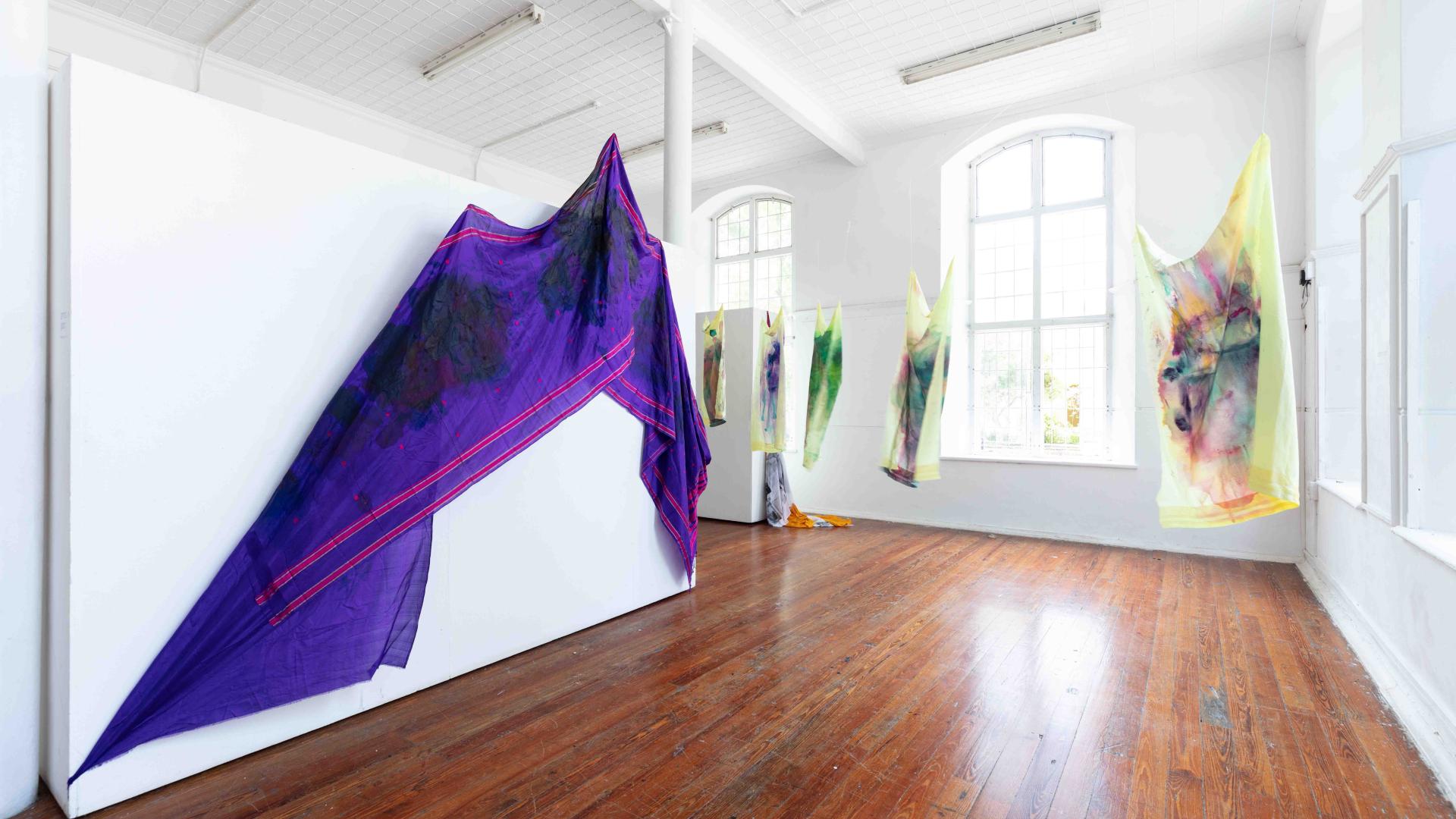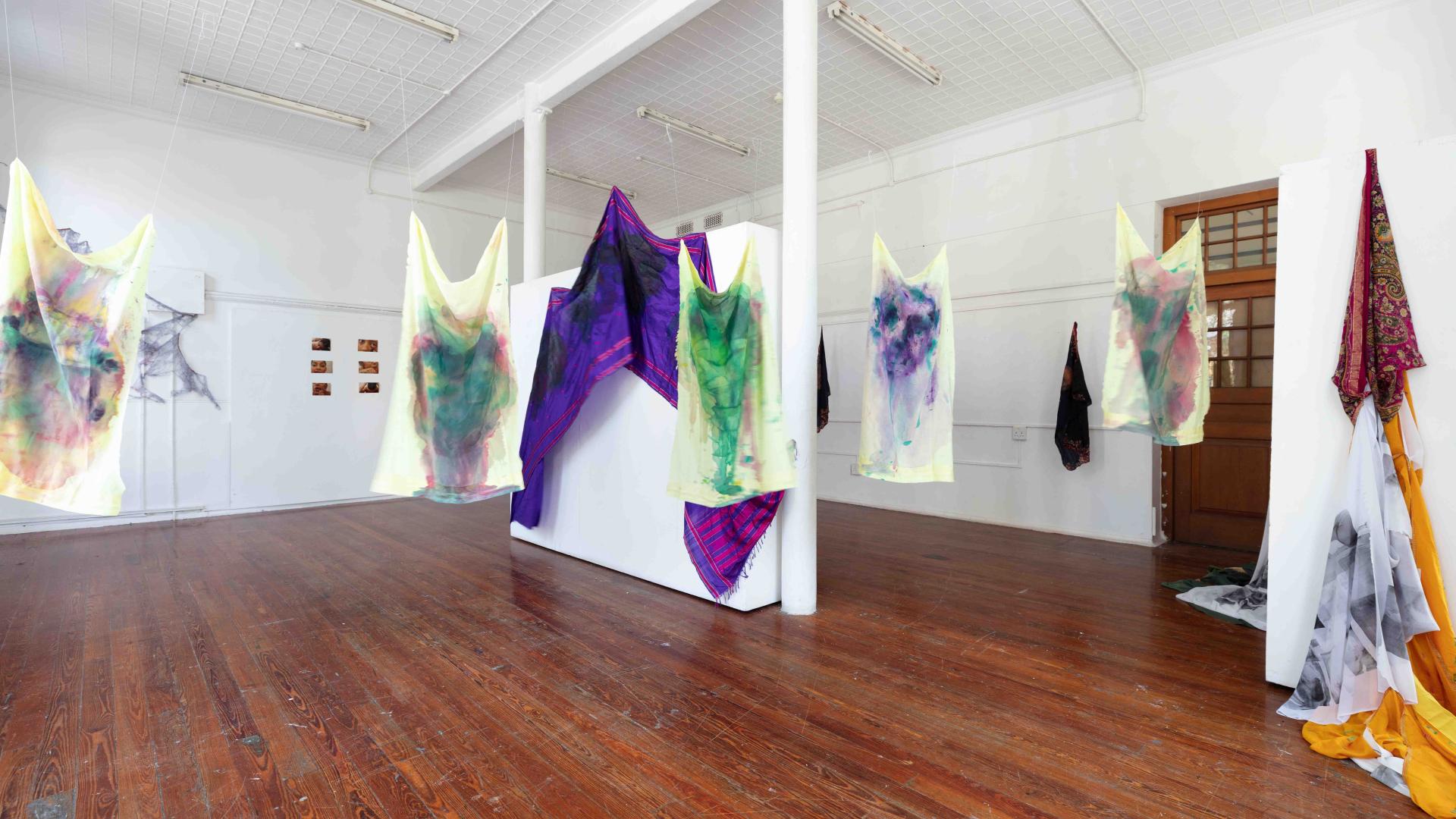Shivania Perumal
Artist Catalogue
Virtual Exhibition
Liminal spaces: the conflation of mental illness and Indian womanhood
I am working with the intersection of two integral aspects of my life that somewhat define (but do not limit) who I am as a person. These are my identity as an Indian woman and the experiences that I have had with my mental health. Although my family can be separated into groups that uphold diametrically opposing belief systems regarding the role of young women in upholding cultural norms, common expectations between the groups are found. There is a constant pressure to be perceived in a manner that aligns with age-old traditions. Discrepancies regarding Indian womanhood appear when cultural socialisations conflict with a sense of identity that opposes them. This has always been an issue for me because I developed the need to constantly prove and validate my identity as an Indian woman and situate myself within my community. I often get criticised for “not being Indian enough”, which often leaves me in an uncomfortable liminal space, a third space.
The conflation of motherhood and womanhood that exists in many Indian families encourages an environment where Indian women are restricted to limiting gender roles and “modest” traditions. The fear of being “immodest” creates a space in which having ownership of my own body remains out of reach. Culture and religion play a significant role in the way in which mental illnesses are allowed to be expressed, perceived and treated. Conservative Indian cultural beliefs often breed an environment of ignorance surrounding the topic of mental health. It becomes difficult for me to experience the effects of my mental illnesses in a space that remains oblivious to the gravity of them.
In my practice, I use some of my grandmother’s saris (to paint on with oil paint) because of the sentimental value they possess. It is a direct connection to the women in my family that came before me. Painting was part of my initial attraction to art because of its therapeutic benefits. Art therapy assists with the articulation of emotions that cannot be expressed with words. I employ this practice to speak to the mental illnesses of myself and the women who have been silenced all around me. I have painted a series of works on saris, which represent the mental health experiences I face and the complications that exist within the Indian community in which I grew up. These include extreme episodes of mania and depression, obsessive and neurotic tendencies, panic attacks, and an inability to accurately recollect moments from my past. I represent “severed” or floating heads as one’s face is the visual site of emotion; blurry images of memories I cannot recollect and provocative pictures of my own body that I should be afraid of revealing.
The purpose of my work is not to commit cultural suicide but rather to challenge the perceptions of Indian women and mental health in my family and the communities I grew up in.









